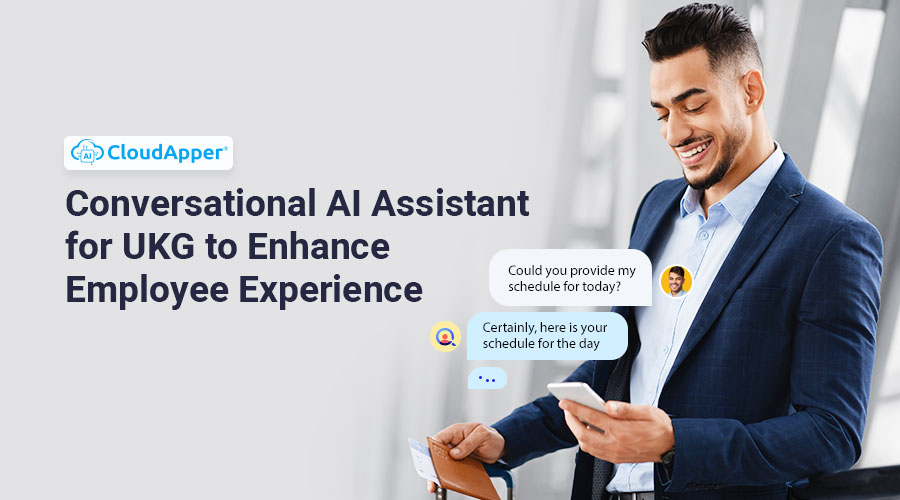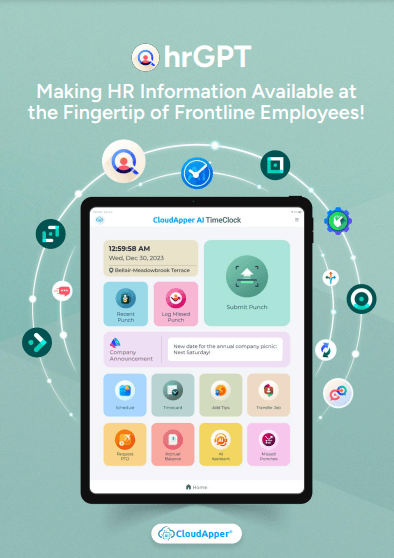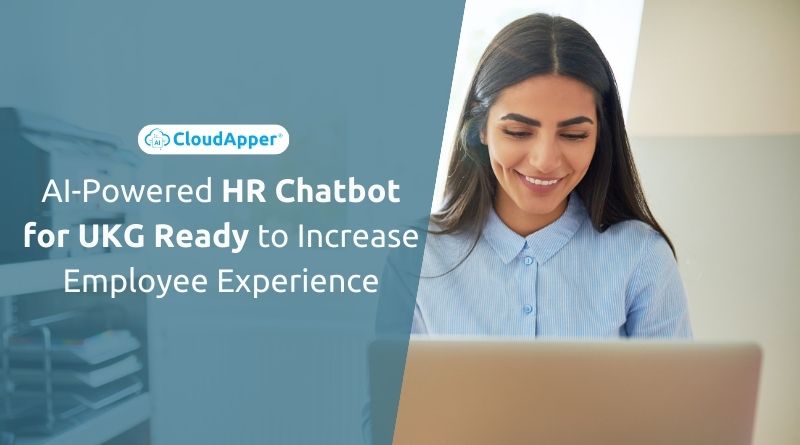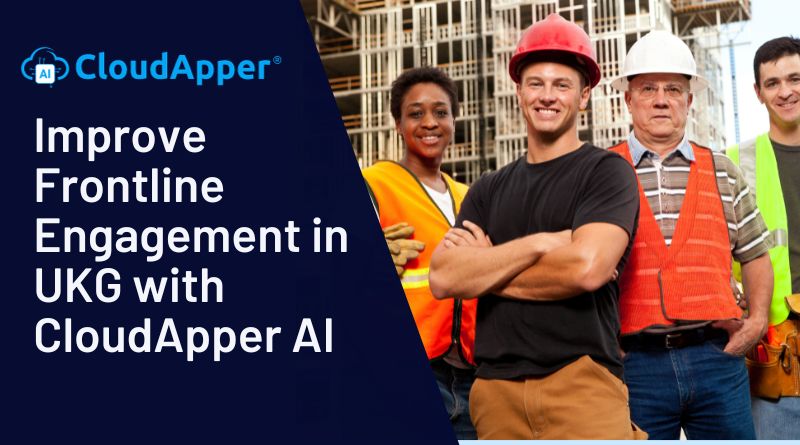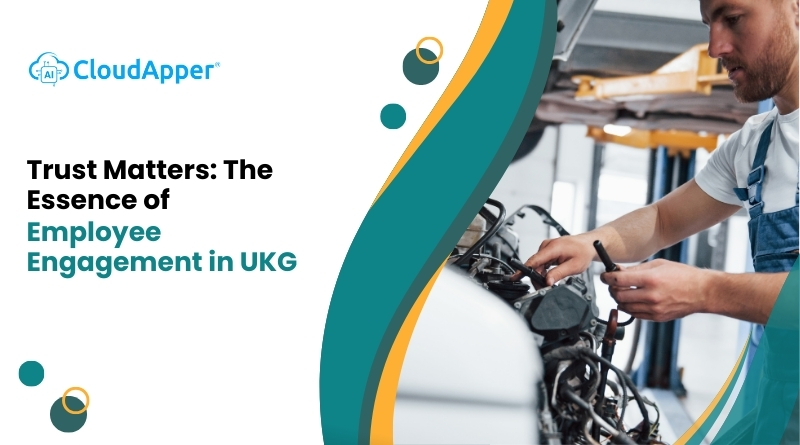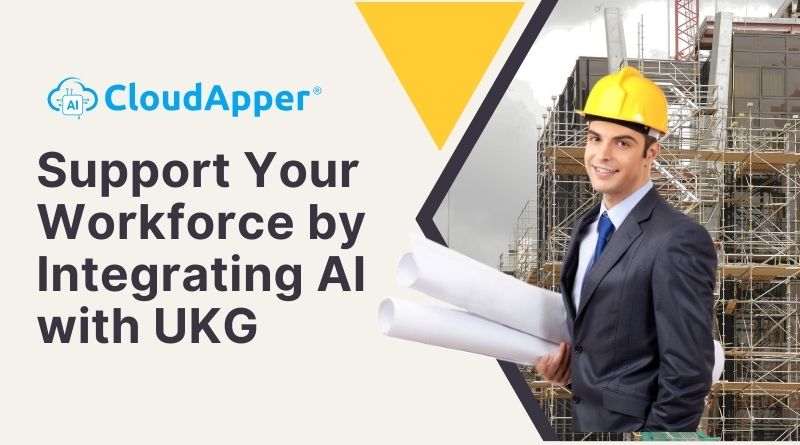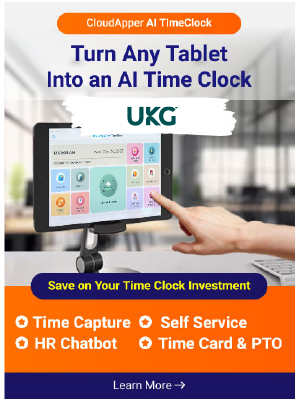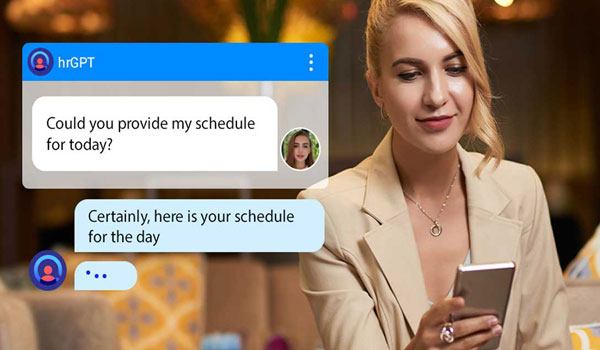By providing quick assistance, individualized interaction, and simplified procedures, CloudApper hrGPT, a cutting-edge Conversational AI Assistant, is revolutionizing the way in which businesses interact with their staff. By automating tasks, enhancing learning, and ensuring data privacy, hrGPT enhances HR operations and elevates workforce satisfaction. Conversational AI may help you build a stronger team and prepare your business for the future of work.
Table of Contents
The importance of the employee experience to a company’s performance is becoming more widely acknowledged in today’s fast-paced business environment. Employee morale, productivity, and retention may all benefit from a more happy and fulfilling workplace. The Conversational AI Assistant is a cutting-edge technology that is altering the way businesses communicate with and provide value to their staff. CloudApper hrGPT stands out as an example of this type of technology for improving HR processes and the overall employee experience.
The Paradigm Shift in Employee Experience
The perception of the employee experience has evolved from a tactical necessity to a strategic priority. Everything from an employee’s initial contact with a company (recruitment and onboarding) to their final days (offboarding) is included. Employees that have positive experiences at work are happier, more productive, and feel more connected to the company as a whole. It’s no secret that firms are spending a lot of money making work more enjoyable for their employees.
The Evolution of Conversational AI in Employee Experience Enhancement
Conversational AI, powered by cutting-edge NLP and AI technology, has enabled businesses to have more tailored and effective interactions with their staff. By answering questions, automating routine activities, and offering immediate support, conversational AI assistants act as virtual interfaces between employees and HR departments. There are a plethora of ways in which this technology might improve the working conditions for employees:
- Instant Support Around the Clock: CloudApper hrGPT is an example of a conversational AI assistant that is available around the clock to offer employees the information and help they need. Because of this, queries and concerns raised by staff members may be answered quickly, even outside of regular business hours.
- Personalized Engagement: Conversational AI Assistants use AI-powered personalisation to provide employees with replies and suggestions that are unique to their positions, preferences, and prior interactions. Providing such individualized attention helps employees feel valued in their roles.
- Streamlined Onboarding: New hires often feel lost while trying to figure out how to go through the onboarding process. An AI Conversational Assistant may help new hires feel more at home by walking them through required documentation, corporate regulations, and orientation materials.
- Task Automation for Efficiency: Human resources teams may be hampered in their ability to pursue strategic initiatives due to an abundance of mundane administrative work. By automating routine HR processes like leave requests, document retrieval, and benefits enrollment, conversational AI assistants may free up HR professionals to focus on more strategic work.
- Learning and Skill Development: Conversational AI has the potential to act as a learning resource by informing workers about available training courses, materials, and chances to improve their professional competence.
- Engagement and Feedback: Assistants powered by AI may conduct interactive surveys with staff to learn about their perspectives on many areas of the work environment. Organizations may use this information to pinpoint problem areas and formulate improvement strategies.
- Wellness Support: Conversational AI assistants can benefit employees’ health by educating them on the need of maintaining a healthy work-life balance, dealing with stress, and signing up for wellness programs.
- Multilingual Accessibility: Conversational AI’s multilingual support may help companies with varied workforces ensure that all employees have access to information in their native language.
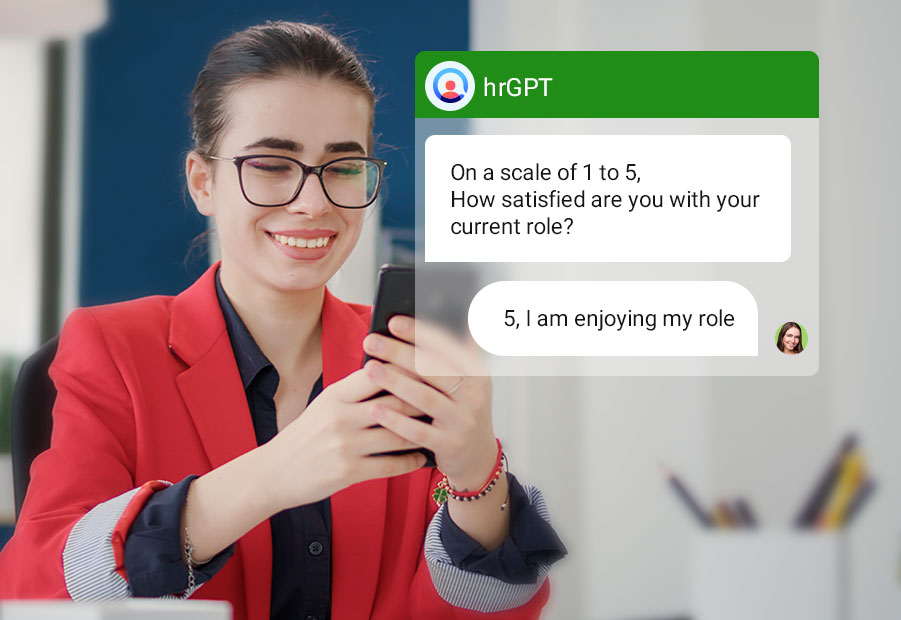
CloudApper hrGPT: Elevating Employee Experience Through AI
CloudApper hrGPT becomes a game-changer for Conversational AI Assistants. To improve the employee experience, HR departments can’t do without an AI-powered HR chatbot, which is designed specifically for HR operations.
- Natural Language Comprehension: The sophisticated natural language processing (NLP) features included into CloudApper hrGPT enable it to understand and respond to employee questions posed in plain English.
- Efficient Self-Service: CloudApper hrGPT reduces workers’ dependency on HR professionals for regular enquiries by providing instant responses to frequently asked questions.
- Task Automation and Reminders: CloudApper hrGPT automates activities, provides reminders, and helps employees through procedures to make HR interactions simple, from vacation requests to expense reports.
- Data Privacy Assurance: To protect the privacy and confidentiality of its users, CloudApper hrGPT follows strict industry standards for data encryption and access controls.
- Continuous Learning and Enhancement: Using the data gathered from its interactions, an AI assistant is able to hone its replies over time and adapt to new regulations.
- Seamless Integration with HR Systems: By easily integrating with preexisting HR systems, CloudApper hrGPT may get access to relevant data and deliver precise replies, enhancing the experience for employees.
In Conclusion: Shaping a Resilient Future of Work
Human resource management has entered a new era with the integration of Conversational AI Assistants with UKG HCM. Organizations may improve HR procedures, morale, and output with the help of AI and NLP coming together. The revolutionary potential of AI-powered assistants is on full display in CloudApper hrGPT. Companies that care about their workers as whole people and as productive members of the company must embrace the potential of Conversational AI. Adapting a workforce to new conditions in the workplace will require a combination of technological advancements and efforts to improve workers’ quality of life on the job.


